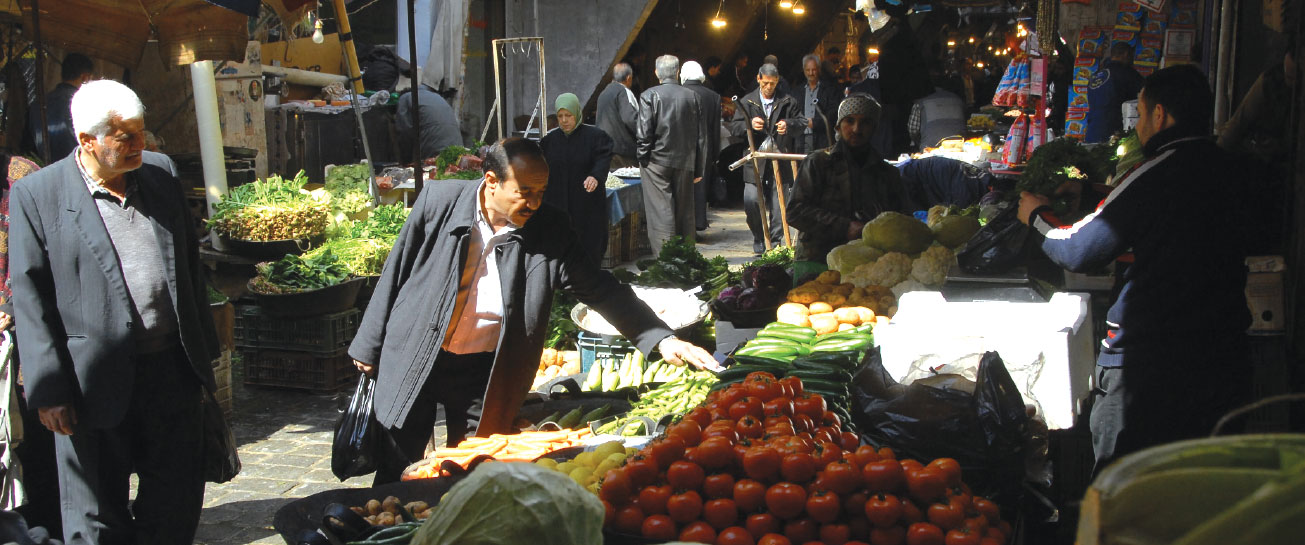Prices have continued their rise, refusing to respond to the first bulletin issued by the Ministry of Internal Trade and Consumer Protection, despite the fact that goods were priced according to popular prices, and are refusing to decline in parallel with the fall of the dollar in the black market by nearly 200 pounds.
A tour of various markets in Damascus and its countryside reveals an unjustified record high. The rise affected not only oils and sugar but even some consumer and even luxury items, which raises the question of how feasible and effective supply monitoring is, not to mention the ongoing question in the mind of the consumer of whether it even exists.
The head of Internal Trade and Consumer Protection in Damascus Countryside, Louay al-Salem, told Al-Watan that all the capacities of his directorate had been put on monitoring markets at the current time, adding that the staff was tightening supervision around the clock—including complaints, which numbered 92 and were dealt with immediately this month.
Salem said that the supply monitoring patrols were looking into prices and making sure they conformed with reality first as well as looking into other violations. He said that the patrols were investigating prices, invoices, and the source of the goods, and that if the seller had no invoice and had increased the price, the patrols would even accept a statement from the seller about the source of his goods. He said that the monitoring patrols were not just limited to retailers but included all activities, including wholesalers.
Salem added that since the start of the month, the patrols have closed four fuel stations, including three in Qalamoun, for selling a liter and a half of fuel for the price of two liters, around 25 Syrian pounds over the official price.
The director of the Consumer Protection Department, Ali Mazloum, told Al-Watan that there had been 486 seizures since the beginning of the month, including various violations, such as not announcing the price and selling at an excessive price, and not displaying the receipts and showing irregular receipts.
This article was translated and edited by The Syrian Observer. The Syrian Observer has not verified the content of this story. Responsibility for the information and views set out in this article lies entirely with the author.


